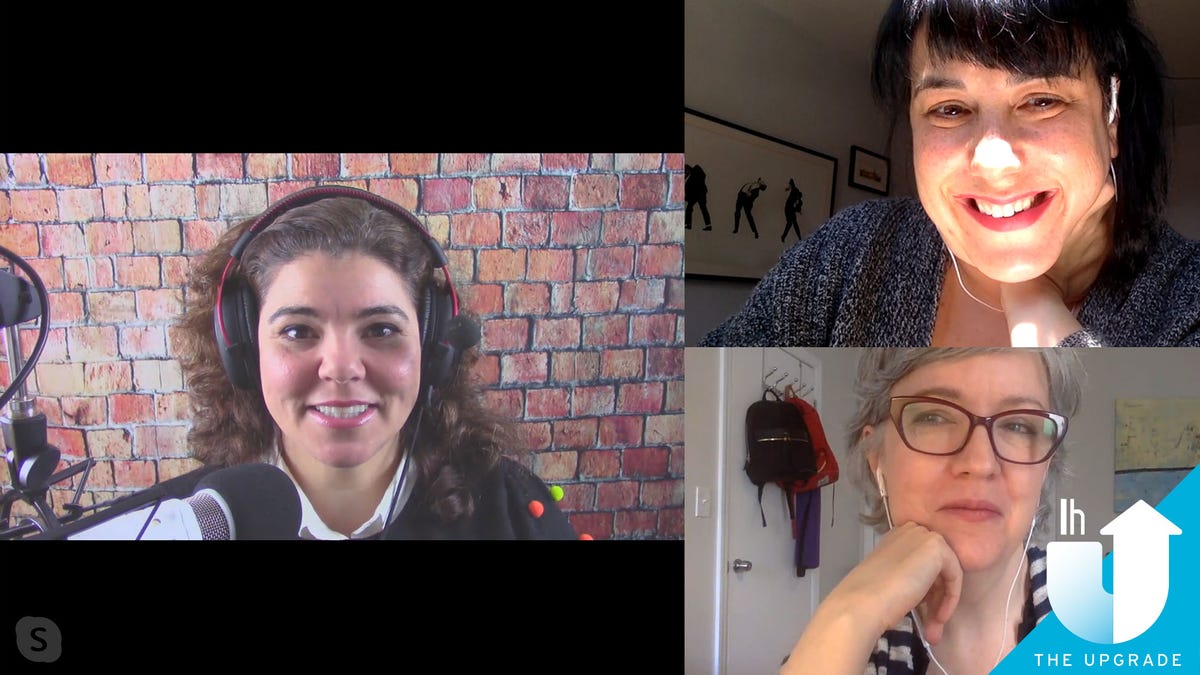How to Do Less, With Journalist Celeste Headlee - 3 minutes read
 Are you feeling burned out? Do you find yourself working more, not less, even while working from home? Award-winning journalist Celeste Headlee joins us on The Upgrade this week to talk about how the toxic culture of busyness is harming both our brains and our bodies, and what we can do about it. Celeste is the author of We Need to Talk: How to Have Conversations That Matter, and most recently, Do Nothing: How to Break Away from Overworking, Overdoing, and Underliving.
Are you feeling burned out? Do you find yourself working more, not less, even while working from home? Award-winning journalist Celeste Headlee joins us on The Upgrade this week to talk about how the toxic culture of busyness is harming both our brains and our bodies, and what we can do about it. Celeste is the author of We Need to Talk: How to Have Conversations That Matter, and most recently, Do Nothing: How to Break Away from Overworking, Overdoing, and Underliving.Advertisement
Later in the show, hear Lifehacker’s health editor Beth Skwarecki speak with mental health expert Dr. Sanam Hafeez, of Comprehensive Consultation Psychological Services, about how to navigate this psychologically stressful time for ourselves and our kids.
Advertisement
Listen to The Upgrade above or find us in all the usual places podcasts are served, including Apple Podcasts, Google Play, Spotify, iHeartRadio, Stitcher and NPR One.
Highlights from this week’s episode
From the Celeste Headlee Interview
On how the workplace culture of hyper-productivity makes working from home detrimental to our well being:
It’s probably more important you buy [Do Nothing] for your manager than for yourself in some ways, because frankly, the management that we have right now—and I’m speaking in general, obviously—is in its 19th-century mindset. They’re still using strategies and techniques that worked on a factory line and we’re not there anymore. So maybe people thought like I did, that working from home when suddenly be more relaxed and maybe it is jarring to find out that you’re more stressed and feel like you’re working all the time...Even before this quarantine, the boundary lines between work and home were already blurred to an extent that was harming our well-being. It was already bad and you can imagine how much worse it is when literally our home is our workplace. And I don’t think people, neither employees nor employers, understand how to make this work in a way that is sustainable.
Tuesday's Best Deals: PlayStation Plus 1-Year Membership, Macy's... Read on The Inventory
On why old-fashioned phone calls might sometimes be better than video calls:
[T]eleconferencing is great and we know from research that it’s just slightly below in-person interaction. Right now, our Zoom calls and our Skype calls are also associated very much with work. So you’re still looking at a computer screen, [and] most people don’t only Zoom. They keep their inbox open. They keep their Internet open. They have their cell phone sitting right next to them. So their brain is trying to multitask, which is exhausting to your brain and your body. By the way, when you’re when you attempt to multitask, you lose ten to twelve IQ points...It can do cognitive damage over time. So at this point, these social interactions are caught up in this other anxiety and exhaustion. And it’s okay to not Zoom. It is OK to use the phone... Because frankly, the human voice is incredibly powerful...We evolved to hear human voices and get information just from a human voice. So if you’re tired and you don’t want to see somebody, it’s OK to have your virtual happy hour or whatever over the phone.
Advertisement
To hear more of Celeste’s tips on how to get some actual, restorative down time for your brain, we strongly recommend listening to the full episode.
Have any feedback or ideas for future episodes? Want to be featured on the show? Leave us a voicemail at 347-687-8109 or send a voice memo to upgrade.com.
Advertisement
Episode Transcript
Source: Lifehacker.com
Powered by NewsAPI.org